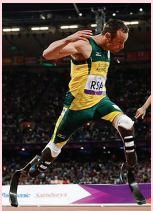Advertisements
Advertisements
प्रश्न
How did the hospitalization of Dr. Barnard and his wife affect their routine?
उत्तर
As a heart surgeon, he had to operate on many heart patients. He was helpless as he had perforated lungs and broken ribs. His wife could not take care of the baby. Thus the routine life of both Dr. Barnard and his wife has affected adversely.
APPEARS IN
संबंधित प्रश्न
What were the various jobs undertaken by the little boys?
Justify the title of the story ‘Two Gentlemen of Verona’
According to the author, what does the phrase ‘a nice cup of tea’ refer to?
How does army tea taste?
Why does the author refer to himself as being in ‘a minority’?
Whom does the author call ‘misguided people’? What is his advice to them?
What are the aspects that contribute to humor in the essay?
There are several physically-challenged people who have lived successful and meaningful lives. Here are a few personalities who have fought great odds and lived a life of blazing achievements. Let’s share what we know about each of them and complete the table below.
| Name of the personality | Nature of challenge | Field of achievement |
| e.g. Beethoven | Hearing impairment | Music |
| Demosthenes | ||
| Helen Keller | ||
| Mariyappan Thangavelu | ||
| Mozart | ||
| John Milton | ||
| Sudha Chandran |

What does Dr. Barnard compare this entertainment to?
Give an account of the medical problems for which the two boys were hospitalized.
How did a casual incident in a hospital help Dr. Barnard perceive a new dimension of life?
Life is unjust and cruel to certain people. Do they all resign themselves to their fate? Can you think of some who have fought their disabilities heroically and remained a stellar example for others? (for e.g. the astrophysicist Stephen Hawking, a paraplegic). Give an account of one such person and his/her struggle to live a fruitful life.
Tick the qualities that are required to achieve such a feat.
| passion | reward | determination | physical |
| fame | faith | courage | money |
| drive | vengeance | inspiration | self-satisfaction |
| vision | undying spirit | inner-urge | perseverance |
Name an equipment and a tool carried by the climbers during their expedition.
What did Hillary find in a tiny hollow?
What did Edmund Hillary do to escape the large overhanging ice cornices?
How did Maamanaar handle the chair at home?
Why did the family find it difficult to make a chair?
What was grandmother’s suggestion of wood? Why?
When did the children get over the fear of sitting on the chair?
What would be the consequence of the old lady’s action?
Why should individual liberty be curtailed?
How would a reasonable person react when his actions affect other person’s liberty?
How can we sweeten our life’s journey?
‘Curtailment of private liberty is done to establish social order’ – Do you agree?
Explain in your own words, "What freedom means?"
Civilization can only exist when the public collectively accepts constraints on its freedom of action – Explain.
Para 15
For a few moments, I lay regaining
my breath, and for the first time really
felt the fierce determination that nothing
now could stop us from reaching the top. I took
a firm stance on the ledge and signaled
to Tenzing to come on up. As I heaved
hard on the rope, Tenzing wriggled his
way up the crack, and finally collapsed at
the top like a giant fish when it has just
been hauled from the sea after a terrible
struggle.
Para 16
The ridge continued as before:
giant cornices on the right; steep rock
sloped on the left. The ridge curved away
to the right and we have no idea where the
top was. As I cut around the back of one
hump, another higher one would swing
into view. Time was passing and the ridge
seemed never-ending.
Para 17
Our original zest had now quite
gone, and it was turning more into a grim
struggle. I then realized that the ridge
ahead, instead of rising, now dropped
sharply away. I looked upwards to see a
narrow snow ridge running up to a snowy
summit. A few more whacks of the ice-ax
in the firm snow and we stood on top.
The ridge had taken us two and half hours, but it seemed like lifetime. Why? (Para 15 to 17)
